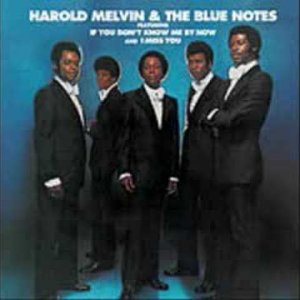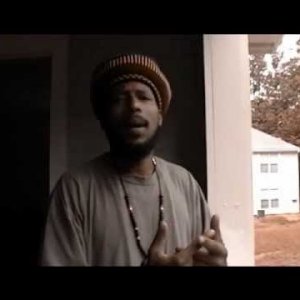In Northern Togo about 35 kilometers from Sokode, in what is known as the "Tchamba District," there exist a multi-ethnic mixture of mainly Fulani groups who are known as the Tchamba. These rural districts consists of numerous towns and villages of Kri-kri, Kambole, Dantcho, and Kousoutou comprising some of their main village centers. Buli and Gur, also known as "Atche" is the language spoken by these Tchamba groups, whose inhabitants reside across the entire West African landscape including in Northern Ghana, Upper Volta, Togo, Mali, Burkina Faso, Benin, Cote D'Ivoire and among the Kaby (Ewe) in the central Kara region of Togo.
The ancestral spirits of these numerous Fulani groups served in the lineages of the Ewe, Mina and Quatchi clans in southern Togo because many of the Fulani women who fled northern Togo in search of work in the south were held in perpetual servitude by some Ewe families who often did not pay them due compensation for their services.
When these Fulani servants died their spirits would return to the Ewe families from which they were indentured and demand to be honored and that their children be justly compensated. In the majority of the cases, these ancestral spirits with inter-ethnically mixed because many Ewe men married Fulani servants and bore children with them.
Divine Compensation: Righting Moral Wrongs
Because the system of Divine restitution in inherent within the Yeveh Mami Vodoun Ewe cosmology, special ceremonial rites are held to honor those indentured Fulani whose ancestra lineages are as old as Africa herself. In return for their honore the Ewe are rewarded with blessings of wealth, health and protection of their own children as well as divine relief from the law of restitution. Although the Tchamba groups are found today in northern Togo, their history is an ancient one that extends to a far more remote period in African history.
The Fulani are some of the oldest Africans on the planet and are genetically connected with all African groups. Sometimes being completely absorbed by local groups wherever they have settled. However, the "Tchamba" "slave sibs," did not begin with the Ewe. It has its origins deep in the soils of Africa's oldest matriarchal ancestral spiritual systems. Specifically in the matriarchal compensatory systems of ancient Africa, where no African soul is "lost," but re-subsumed into the cosmogenetic families of their original ancient sibs. In modern terms, for all enslaved throughout the Diaspora, this would mean the genetic haplogroups who descend from the first ancient mother clans of "Eve."
Although attributed to the Fulani, "tchamba" is actually a cosmological concept rooted in restoring justice to the ancient totemic and elevated ancestors whose children have been wronged by other Africans. Without this system of divine justice, the offending African clans will suffer misfortune and even extinction if justice through agreed compensation is not restored. According to some sources, the word "Tchamba" is a German phonetic corruption of the word "Samba" or "Somba," meaning "naked/native." The colonial French spelling is "Chamba" and was attributed to the Fula (Fulani) groups of the West African Atlantic regions and among the Mande of North Africa.
However, the word "Chamba" could have its etymological origins in the word "Chamba" as it was known by the ancient (Ewe) Syrians, and "Hama" by the Persians, meaning "sun people," or literally "children of the Sun," and more extant "Temple of the Sun." Referring to one of the oldest Mami temples located in the Swiaa desert in southwestern Egypt. This ancient Ompha oracular temple was later usurped by the priests of Amun and renamed "Temple of Amun." Nevertheless, the Fulani, Ewe and Da-Adangde groups share an ancient cultural and, prior to its usurpation by Mohammadan Islam, matriarchal spiritual history together.
The Fulani, Slavery and Divine Compensation
During the height of African patriarchy, it was the forced usurpation of the original matriarchal clans/sibs which divided the fulani groups, with many of the patriarchs adopting and imposing the new misogynistic Islam upon its resistant queen mothers and clan members. Those who did not comply were tortured, killed or sold into slavery. What distinguishes the Fulani fro other Africans who later participated in the West African slave trade, is that they were the first to establish an "organized" system of commerce in "chattel slavery". which they began by selling off their own fellow ethnic clan members to the Arabs and later Euro(PEEons). The Fulani were the major business "intermediaries of slave commerce throughout Africa and made no compunction about selling those matriarchal clans who would not comply in converting to Islam. In the "New World", on the island of Trinidad and in Tobago, the name Chamba and Thiamba still survives and is directly identified with the Fulani slave traders or the speakers of the Gur languages.
It is for this reason that the Fulani pre-figure so prominantly in the West African slave sibs of the Tchamba, heading the ancestral pantheon of elevated ancestors. It is under Mami Awussa who have resurrected the souls of these matriarchs and have eternally sentenced those who sold them to now serve their descendants as part of their divine restitution. In other words, it is the elevated ancestors of the ancient Fulanis who must compensate all of the victims of the slave trade and are responsible for retrieving and redirecting all enslaved Africans back to their ancestral clans/sibs. This is what makes the Tchamba such a powerful ancestral system in America and elsewhere, because according to Mami Wata Vodoun cosmology, ALL Africans enslaved anywhere in the world are brought back under the domain of the Tchamba, who then re-aligns them back to their original bio-genetic ancestors.
The ancestral spirits of these numerous Fulani groups served in the lineages of the Ewe, Mina and Quatchi clans in southern Togo because many of the Fulani women who fled northern Togo in search of work in the south were held in perpetual servitude by some Ewe families who often did not pay them due compensation for their services.
When these Fulani servants died their spirits would return to the Ewe families from which they were indentured and demand to be honored and that their children be justly compensated. In the majority of the cases, these ancestral spirits with inter-ethnically mixed because many Ewe men married Fulani servants and bore children with them.
Divine Compensation: Righting Moral Wrongs
Because the system of Divine restitution in inherent within the Yeveh Mami Vodoun Ewe cosmology, special ceremonial rites are held to honor those indentured Fulani whose ancestra lineages are as old as Africa herself. In return for their honore the Ewe are rewarded with blessings of wealth, health and protection of their own children as well as divine relief from the law of restitution. Although the Tchamba groups are found today in northern Togo, their history is an ancient one that extends to a far more remote period in African history.
The Fulani are some of the oldest Africans on the planet and are genetically connected with all African groups. Sometimes being completely absorbed by local groups wherever they have settled. However, the "Tchamba" "slave sibs," did not begin with the Ewe. It has its origins deep in the soils of Africa's oldest matriarchal ancestral spiritual systems. Specifically in the matriarchal compensatory systems of ancient Africa, where no African soul is "lost," but re-subsumed into the cosmogenetic families of their original ancient sibs. In modern terms, for all enslaved throughout the Diaspora, this would mean the genetic haplogroups who descend from the first ancient mother clans of "Eve."
Although attributed to the Fulani, "tchamba" is actually a cosmological concept rooted in restoring justice to the ancient totemic and elevated ancestors whose children have been wronged by other Africans. Without this system of divine justice, the offending African clans will suffer misfortune and even extinction if justice through agreed compensation is not restored. According to some sources, the word "Tchamba" is a German phonetic corruption of the word "Samba" or "Somba," meaning "naked/native." The colonial French spelling is "Chamba" and was attributed to the Fula (Fulani) groups of the West African Atlantic regions and among the Mande of North Africa.
However, the word "Chamba" could have its etymological origins in the word "Chamba" as it was known by the ancient (Ewe) Syrians, and "Hama" by the Persians, meaning "sun people," or literally "children of the Sun," and more extant "Temple of the Sun." Referring to one of the oldest Mami temples located in the Swiaa desert in southwestern Egypt. This ancient Ompha oracular temple was later usurped by the priests of Amun and renamed "Temple of Amun." Nevertheless, the Fulani, Ewe and Da-Adangde groups share an ancient cultural and, prior to its usurpation by Mohammadan Islam, matriarchal spiritual history together.
The Fulani, Slavery and Divine Compensation
During the height of African patriarchy, it was the forced usurpation of the original matriarchal clans/sibs which divided the fulani groups, with many of the patriarchs adopting and imposing the new misogynistic Islam upon its resistant queen mothers and clan members. Those who did not comply were tortured, killed or sold into slavery. What distinguishes the Fulani fro other Africans who later participated in the West African slave trade, is that they were the first to establish an "organized" system of commerce in "chattel slavery". which they began by selling off their own fellow ethnic clan members to the Arabs and later Euro(PEEons). The Fulani were the major business "intermediaries of slave commerce throughout Africa and made no compunction about selling those matriarchal clans who would not comply in converting to Islam. In the "New World", on the island of Trinidad and in Tobago, the name Chamba and Thiamba still survives and is directly identified with the Fulani slave traders or the speakers of the Gur languages.
It is for this reason that the Fulani pre-figure so prominantly in the West African slave sibs of the Tchamba, heading the ancestral pantheon of elevated ancestors. It is under Mami Awussa who have resurrected the souls of these matriarchs and have eternally sentenced those who sold them to now serve their descendants as part of their divine restitution. In other words, it is the elevated ancestors of the ancient Fulanis who must compensate all of the victims of the slave trade and are responsible for retrieving and redirecting all enslaved Africans back to their ancestral clans/sibs. This is what makes the Tchamba such a powerful ancestral system in America and elsewhere, because according to Mami Wata Vodoun cosmology, ALL Africans enslaved anywhere in the world are brought back under the domain of the Tchamba, who then re-aligns them back to their original bio-genetic ancestors.








